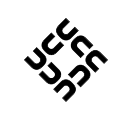|
Size: 221
Comment: EPS2BW <a href="http://sajpfcawpocy.com/">sajpfcawpocy</a>, [url=http://zwfkrfmknrgw.com/]zwfkrfmknrgw[/url], [link=http://xsgtunqsjcdc.com/]xsgtunqsjcdc[/link], http://wsszmawhjxpp.com/
|
Size: 1755
Comment: spam
|
| Deletions are marked like this. | Additions are marked like this. |
| Line 1: | Line 1: |
| EPS2BW <a href="http://sajpfcawpocy.com/">sajpfcawpocy</a>, [url=http://zwfkrfmknrgw.com/]zwfkrfmknrgw[/url], [link=http://xsgtunqsjcdc.com/]xsgtunqsjcdc[/link], http://wsszmawhjxpp.com/ | Supposedly a unit on operating systems, but has been found to be somewhat lacking in content. The beginning of the unit is used as an excuse to teach C (this may change with the new C programming unit). There is a project of varying difficultly (in 2003 it was writing a portable shell, it has gotten harder since then) which is in C. 2002 featured a make(1) replacement called bake that had to run on Windows and Linux and had "Bakefiles" as data. The 2005 unit's project involved writing a process scheduling system, implementing simple scheduling protocols: First Come - First Served, Round Robin, Multi level feedback, etc. Remember to write sufficient documentation and use a makefile that works without any modification or command line arguments, and to make a random process generator to earn extra points. This serves as many student's introduction to the C programming language. It unfortunately does not serve as their introduction into the debugging tools that would make it otherwise bearable. Before CSSE borged the IT Engineering course in 2001, [[EE]] taught a far better Operating Systems course that involved hacking on [[Minix]]. Has been taught by ChrisMcDonald and LyndonWhile. The 2005 exam was fairly crammable: Do the tutorials, memorise the notes and you should be fine for the exam. Lyndon seems to like bullet-point recall questions, whereas Chris tended to ask more open-ended long answer questions. Textbook is by WilliamStallings (who also writes a ComputerArchitecture book), it is of passable quality, but he's certainly no AndrewTannenbaum. [[http://undergraduate.csse.uwa.edu.au/units/CITS2230|Unit webpage]] [[http://handbooks.uwa.edu.au/units/cits/cits2230|Handbook entry]] |
| Line 3: | Line 19: |
| CategoryProjectsComplete | CategoryUnits |
Supposedly a unit on operating systems, but has been found to be somewhat lacking in content. The beginning of the unit is used as an excuse to teach C (this may change with the new C programming unit). There is a project of varying difficultly (in 2003 it was writing a portable shell, it has gotten harder since then) which is in C. 2002 featured a make(1) replacement called bake that had to run on Windows and Linux and had "Bakefiles" as data.
The 2005 unit's project involved writing a process scheduling system, implementing simple scheduling protocols: First Come - First Served, Round Robin, Multi level feedback, etc. Remember to write sufficient documentation and use a makefile that works without any modification or command line arguments, and to make a random process generator to earn extra points.
This serves as many student's introduction to the C programming language. It unfortunately does not serve as their introduction into the debugging tools that would make it otherwise bearable.
Before CSSE borged the IT Engineering course in 2001, EE taught a far better Operating Systems course that involved hacking on Minix.
Has been taught by ChrisMcDonald and LyndonWhile.
The 2005 exam was fairly crammable: Do the tutorials, memorise the notes and you should be fine for the exam. Lyndon seems to like bullet-point recall questions, whereas Chris tended to ask more open-ended long answer questions.
Textbook is by WilliamStallings (who also writes a ComputerArchitecture book), it is of passable quality, but he's certainly no AndrewTannenbaum.



